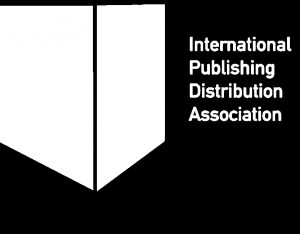During the Readmagine conference in 2024 there was a conversation on education, moderated by Marta Martínez (CEO at Grupo Anaya), with Karla Paniagua and John Martin. In the video of the session can follow all the insightful debate.
Here you can find a very short summary of the issues discussed and the different opinions. The insights from Karla Paniagua and John Martin, framed by Marta Martínez’s moderation, offered a comprehensive overview of the urgent need for creative, technology-integrated, yet balanced approaches to education reform.
The conversation delved into the dynamic challenges and potential innovations in the field. Marta Martínez highlighted the rapid evolution driven by technological advancements, globalization, and social transformations, emphasizing the need for new educational models. She noted the critical role of education in fostering creativity, critical thinking, entrepreneurship, and technological proficiency.
The structure of the conversation could be presented as follows.
- Current Challenges in Education
1.1 Global Anxiety in Education:
– Education systems worldwide face anxiety due to rapid changes and evolving demands.
– Technological advancements and their integration into education present both opportunities and challenges.
– Declining student performance and the need for new skills highlight the urgency for educational reforms.
1.2 Impact of the COVID-19 Pandemic:
– The pandemic significantly disrupted learning processes and mental health.
– The transition to digital learning brought forth both benefits and drawbacks.
1.3 Technology as a Double-Edged Sword:
– While technology offers numerous opportunities, it also poses risks if not aligned with educational goals.
– The debate on the appropriate use of digital devices in education is ongoing.
- Specific Challenges Identified by Karla Paniagua
2.1 Lack of Creativity, Curiosity, and Attention:
– These three elements are crucial for fostering innovation and problem-solving skills.
– The absence of these traits leads to an imagination crisis, affecting both educational and professional environments.
- Specific Challenges Identified by John Martin
3.1 Upcoming Teacher Shortage:
– A significant teacher shortage is predicted, with UNESCO estimating a need for 44 million new teachers by 2030.
– Attrition and demographic changes are the primary causes.
3.2 Declining Learner Outcomes:
– Literacy and numeracy scores have been declining since 2010, exacerbated by the COVID-19 pandemic.
– The gap in functional literacy and numeracy significantly impacts future societal prosperity.
3.3 Digital Transformation:
– The promise of digital learning tools is tempered by their mixed outcomes.
– Over-reliance on screens has led to negative impacts on learning and mental health.
- Role of Innovation in Education
4.1 Innovation Beyond Technology:
– Innovation should not be limited to technological advancements but also include pedagogical methods, human interactions, and resource management.
– The concept of innovation can vary significantly across different contexts, as seen in the differences between Mexico and Helsinki.
4.2 Language as a Fundamental Technology:
– Effective use of language is crucial for improving the learning experience.
– Developing skills in asking good questions and storytelling are essential for fostering curiosity and engagement.
4.3 Gamification and Traditional Games:
– Both digital gamification and traditional games play a vital role in making learning engaging and enjoyable.
- Proposals for Addressing Challenges
5.1 Time Management for Teachers:
– Reducing administrative tasks and streamlining processes can free up teachers to focus more on student interaction.
– Designing learning resources that save time and are user-friendly is essential.
5.2 Personalized Learning:
– Personalization through AI tutors and tailored pedagogies can enhance learning outcomes.
– Engagement is key to improving learner outcomes, requiring innovative approaches that resonate with students.
5.3 Balancing Digital and Traditional Learning:
– There is a need to find the right balance between digital tools and traditional methods to maximize learning benefits while minimizing negative impacts.
- Future Predictions and Wishes
6.1 Resilience and Ingenuity:
– Paniagua expressed a desire for resilience and creativity in utilizing available resources to improve educational experiences.
6.2 Listening and Understanding:
– Martin emphasized the importance of nuanced discussions and understanding in addressing educational challenges, advocating for less polarization and more collaborative problem-solving.
John Martin is the former CEO of Sanoma Learning (HQ in Helsinki, Finland) and is currently Chairman of ILT Education (HQ in Stockholm, Sweden), Board Member of Infinitas Learning (HQ in Utrecht, The Netherlands) and an advisor and investor in various education and edtech companies across the continent.
He has broad experience in the market for learning solutions having led companies that serve some 15M students and 1.5M teachers across Europe and has extensive expertise in internationalisation and digital transformation. Prior to joining Sanoma, John worked in strategy consulting (ContentConnected) and in science publishing (Wolters Kluwer). He has a Ph.D. in bioinformatics.
Karla Paniagua is Phd in cultural studies, Master in social anthropology, communication specialist. She directs the Design of Tomorrow specialty at CENTRO, where she also co-edits the magazine Economía Creativa and leads the UNESCO Chair Design Methods for Democratic Access to the Imagination of the Future. She is the author of three books, she is working on the fourth for Santillana publishing house. She hosts the radio program The Future Was Yesterday and in her leisure time, she is a gardener.
Marta Martínez, the CEO of Grupo Anaya / Hachette for Spain and Latin America since 2020, graduated in Business Administration from St. Louis University, Missouri, and holds a Master’s Degree from the Instituto de Empresa.
With over 30 years of professional experience, she has worked across various sectors, including media, internet, and telecommunications. For the past 15 years, her focus has been on education and publishing, both in European and Latin American markets, where she has led business and digital transformation initiatives in Macmillan Education and Grupo Anaya.
Additionally, Marta Martínez is a member of the Education Publishing Association Board in Spain and serves on the Hachette Livre International Executive Board.





